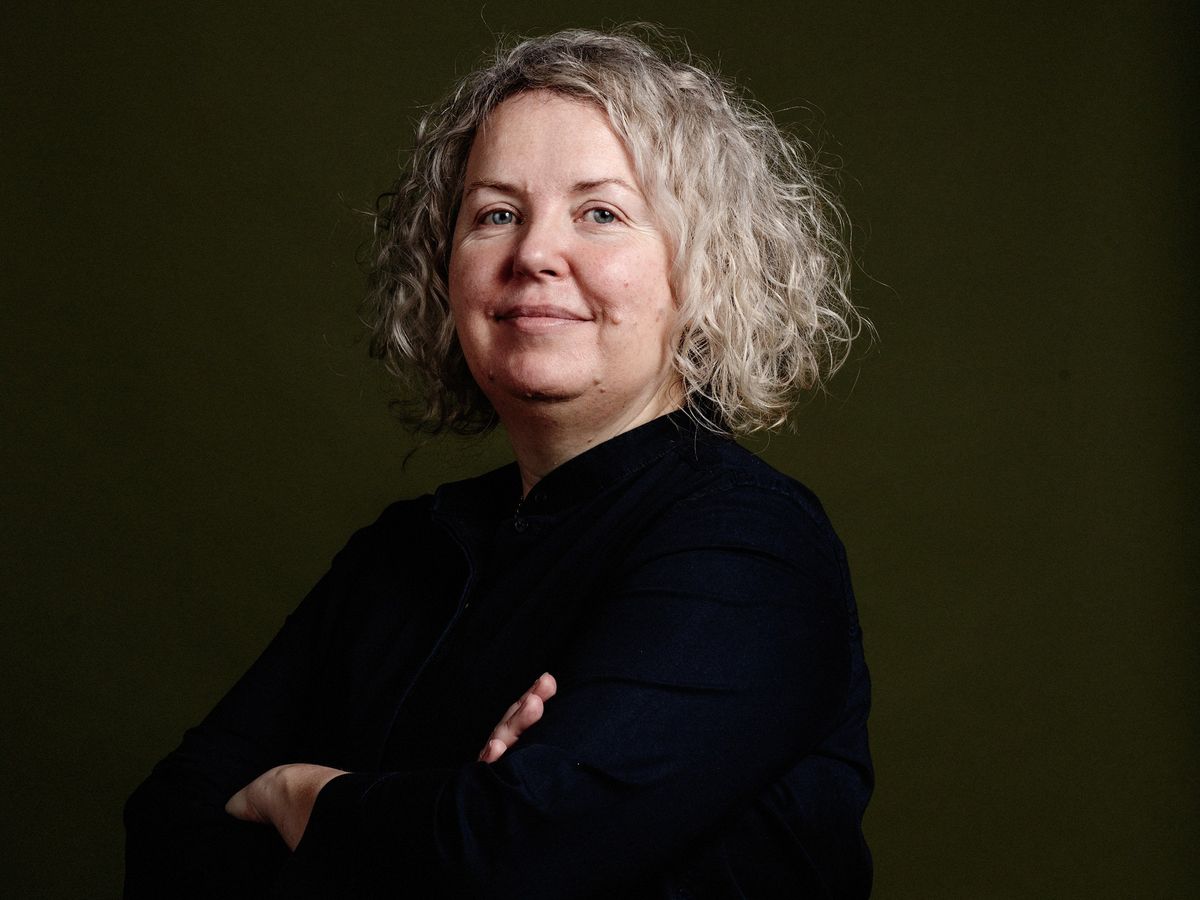Linda Doyle has broken through Ireland’s academic glass ceiling. She is the first woman to be provost of the country’s top-ranked university, Trinity College Dublin, The University of Dublin.
Trinity’s provost is elected by faculty members and student representatives, not a board of trustees, as happens with American university presidents. The 431-year-old university has more than 21,000 students and almost 4,000 staff members.
Doyle is no stranger to Trinity. The IEEE senior member is an alum of its engineering program and has taught at the university since the mid-1990s. Prior to her appointment as provost, she was Trinity’s dean and vice president of research. Her own field is wireless communications.
Linda Doyle
Employer
Trinity College Dublin
Title
Provost
Member grade
Senior member
Alma maters
University College Cork, in Ireland, and Trinity College Dublin
Being provost is “like managing a small town,” she says. “I’m responsible for everything in the university: strategic direction, leadership, the governance, and fundraising. And [I’m expected] to be politically active and a philanthropist.”
Doyle has several goals for the remainder of her 10-year term, which began in 2021. Most important, she says, is increasing the number of women enrolled in science, technology, engineering, and mathematics programs. A longtime advocate for the arts, she also intends to introduce more programs that combine creativity with technology.
In addition, she says, she will be working to ensure the university equips the next generation of engineers with the skills they need to work in a world expected to be transformed by generative AI.
Increasing the number of women in STEM
Doyle acknowledges there is no “silver bullet” to increasing the number of women in engineering and computer science. Trinity has several programs with that goal. It offers scholarships to women who are pursuing a STEM degree and holds events to encourage others to consider a STEM career. Trinity also runs a Women Who Wow mentorship program for female students who want to become entrepreneurs.
Another university program Doyle points to is Bridge, a team-based, technology-mediated initiative aimed at students in secondary schools. It encourages them to experiment, think critically, and be creative. The Bridge CodePlus program offers workshops to teach girls how to code. The workshops “expose students to all kinds of technical applications so they can see that engineering is accessible,” Doyle says.
Having female role models is an important way to boost the number of women in STEM, she says. Women are well represented among Trinity’s current leadership, she points out.
Combining creative arts and engineering
Doyle was a professor of engineering and the arts in the computer science and statistics school at Trinity from 2014 to 2021. And even before that, she loved working with artists, who can help engineers become better at their job, she says.
“I find it powerful to work with creative arts practitioners,” she says. “I think artists are really good at ambiguity, and engineers typically aren’t.
“It’s important [for engineers] to be able to handle ambiguity. There’s a kind of fearlessness about the practice of art in addressing new areas and new things. For artists, there is no such thing as a neutral design; everything has a political driver behind it. I think engineering training doesn’t allow you to see that.”
She believes so strongly in combining the two fields, she says, that she established the Orthogonal Methods Group, a research platform that brings together artists, writers, and telecommunication experts to generate new research areas in information and communication technology. The group is part of CONNECT, the Science Foundation Ireland research center for future communication networks, founded by Doyle and hosted at Trinity with researchers across nine other Irish higher-education institutions.
“When you are designing technology for the future,” she says, “understanding all these things will make you a better engineer.”
AI’s impact on academia
One new technology that concerns Doyle is generative AI such as ChatGPT and the impact it will have on academia.
The COVID-19 pandemic suddenly required students to pivot to online learning, she says, but “I think that will pale in significance to how much generative AI is going to change things—from how instructors teach their material and how students do their homework to how engineering and research are conducted.”
Tomorrow’s students will need to be better communicators, she says, adding that they will need to improve their critical thinking in terms of the material generated by AI while having the ability to verify the data.
“I immediately knew industry was the wrong place for me. The open-endedness of academia really appeals to me.”
“The next generation of engineers will have to be able to deal with the generative AI world,” she says. “In one sense, I think you need to be more expressive and disciplined to be able to deal with it well.”
Some jobs that exist today will no longer be relevant in a few years because of generative AI, she predicts, but a lot of what is being taught now is based on the assumption that the jobs will survive.
For the university itself, she says generative AI is going to have “an absolutely enormous impact on every single thing we do.”
Doyle is working on an initiative to help Trinity tackle AI issues from what she calls multidimensional and multidisciplinary aspects.
The appeal of academia
Doyle grew up in Togher, a suburb of Cork, Ireland. In school, she was interested in math, physics, and chemistry but didn’t have exposure to technical topics outside of class.
She had no female engineering role model when she was growing up. She came from a family of modest means. Her father was a printer, and her mother was a homemaker.
Even though neither parent had studied at a university, they supported her pursuing a degree. Also, because they didn’t know what engineers did, they “had no biases about a woman wanting to be an engineer,” she says. “Their attitude was actually exceptionally liberating.”
Doyle was inspired to pursue an engineering career after attending a presentation on electrical engineering while conducting a campus tour of nearby University College Cork. Afterward, she says, she thought: “Wow! That’s for me.” She enrolled at the college and earned a bachelor’s degree in EE in 1989.
After graduating, she worked for Siemens in Munich for a year.
“I immediately knew industry was the wrong place for me,” she says. “It was kind of too constraining. The open-endedness of academia really appeals to me.”
Thus began her academic career at Trinity, where she earned a master’s degree in science in 1993, a Ph.D. in radio waves in 1997, and later a postgraduate diploma in statistics.
During that period, she also started lecturing and eventually established her own research group.
IEEE provides a global perspective
Doyle joined IEEE in 2002 because “you can’t be a researcher in engineering and not be a member,” she says. She notes that the organization has evolved over the years and now publishes articles on broader topics but still maintains its high quality.
Trinity has an active IEEE student branch—which Doyle says is important because “when you do things as a student, and certainly as a young researcher, you really need to see where your place is in the world.
“There’s no point in being good at something in the context of your own country, especially a small country like Ireland. That global perspective is just so important. I think it sets ambitions. Also, at IEEE, you find people to collaborate with, and you meet people who are interested in the same topics as you.”
This article appears in the March 2024 print issue as “How Linda Doyle Shattered Ireland’s Academic Glass Ceiling.”
- Getting More Students to Develop Tech That Benefits Society ›
- Ohio State President Makes Increasing Interdisciplinary Research and Diversity Her Priorities ›
- How ChatGPT Could Revolutionize Academia ›
Kathy Pretz is editor in chief for The Institute, which covers all aspects of IEEE, its members, and the technology they're involved in. She has a bachelor's degree in applied communication from Rider University, in Lawrenceville, N.J., and holds a master's degree in corporate and public communication from Monmouth University, in West Long Branch, N.J.



